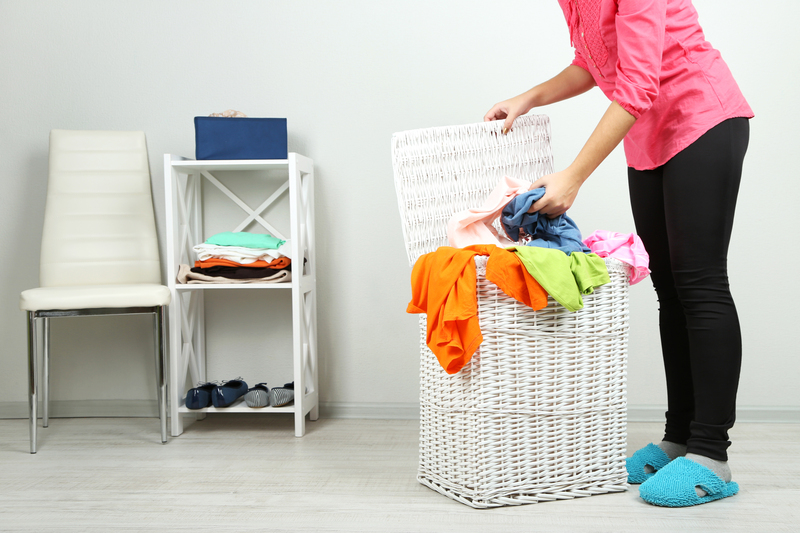Window Screen Cleaning Tips
Posted on 02/08/2024
Window screens are essential in every home as they provide ventilation while keeping pests and debris out. However, they often get overlooked when it comes to routine cleaning. Dirty window screens not only compromise air quality but also impair your view. In this guide, you'll find essential window screen cleaning tips to keep them in pristine condition.
Why Regular Window Screen Cleaning is Important
Regular cleaning of window screens is vital for several reasons:
1. Air Quality Improvement: Screens trap dust, pollen, and other pollutants that can impact indoor air quality.
2. Enhanced Visibility: Clean screens offer a clear view of the outside world.
3. Pest Control: Clean screens deter pests that may find dirt and debris inviting.
4. Extended Lifespan: Regular maintenance can prolong the life of your window screens.

Essential Tools for Window Screen Cleaning
Before diving into the cleaning process, gather the following tools:
- A soft-bristle brush
- Mild detergent or screen cleaner
- A bucket
- A water hose
- Microfiber cloths
- A vacuum with brush attachment
- Vinegar (optional for tough stains)
Step-by-Step Window Screen Cleaning Guide
1. Remove the Screens
Start by removing the window screens from the frames carefully to avoid damaging them. Lay them flat on a safe surface.
2. Brushing Off Excess Dirt and Dust
Using a soft-bristle brush, gently brush off any loose dirt, dust, or cobwebs from both sides of the screen.
3. Apply Cleaning Solution
Mix a mild detergent with warm water in a bucket. Dip your brush or a microfiber cloth into the soapy solution and scrub both sides of the screen. For stubborn stains, add a few drops of vinegar to the solution.
4. Rinse Thoroughly
Using a water hose, rinse the screens thoroughly to remove all soap residues. Ensure that no soap is left on the screen as it can attract more dirt.
5. Dry the Screens
Gently shake off excess water and then pat the screens dry with a microfiber cloth. Alternatively, you can leave them to air dry, but make sure they are completely dry before reinstalling them to prevent mold or mildew.
Additional Tips for Specific Scenarios
- For indoor cleaning: Use a vacuum with a brush attachment to clean the screens without removing them.
- For heavily soiled screens: Consider using a specialized screen cleaner to break down grime more effectively.
- For pet-resistant screens: Regularly check for and clean pet hair that can accumulate on the screens.
Pros and Cons of Window Screen Cleaning Techniques
Pros:
- Improved Air Quality: Cleaner screens mean fewer allergens and pollutants entering your home.
- Enhanced Longevity: Proper maintenance can extend the lifespan of your screens.
- Aesthetic Appeal: Clean screens restore the clarity of your windows, improving the overall look of your home.
Cons:
- Time-Consuming: Regular cleaning can be cumbersome, especially for large homes.
- Potential Damage: Incorrect handling or harsh cleaners can damage screens.
- Resource Intensive: Requires water, detergent, and time, which can be burdensome for some homeowners.

Takeaways
- Use mild detergent and a soft-bristle brush for cleaning.
- Rinse off all soap residues thoroughly to avoid attracting more dirt.
- Ensure the screens are completely dry before reinstalling to prevent mold.
- Regular maintenance is crucial for extending the life of your window screens.
Conclusion
Taking the time to clean your window screens not only enhances the aesthetic appeal of your home but also contributes significantly to the overall air quality indoors. By following these practical tips and steps, you can maintain clean, efficient screens with minimal effort. Remember, the key to longevity is regular upkeep and using the right tools and techniques.
By incorporating these window screen cleaning tips into your regular household chores, you can enjoy clear views, better air quality, and prolonged screen life. Happy cleaning!
Latest Posts
How a Clean Home Refreshes Your Mental State
Green Cleaning Hacks for a Sparkling and Sustainable Space
Discover the Best Home Remedies for Tackling Stubborn Grease Stains




